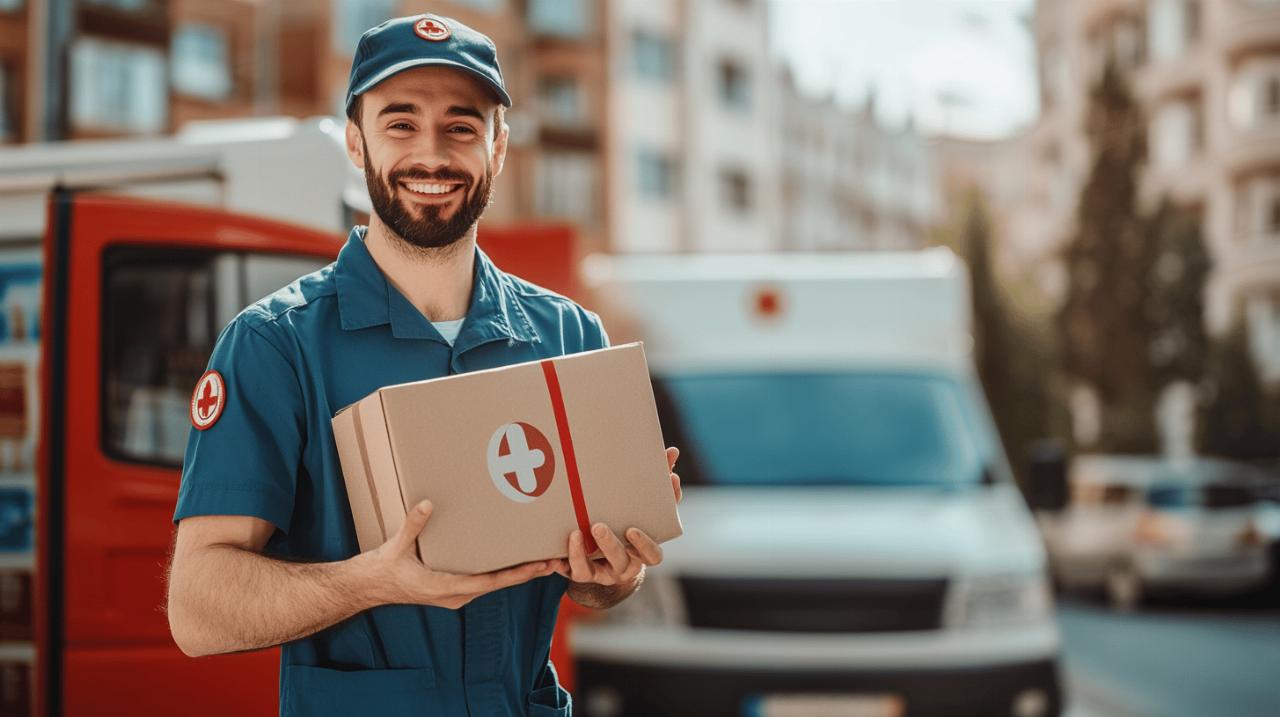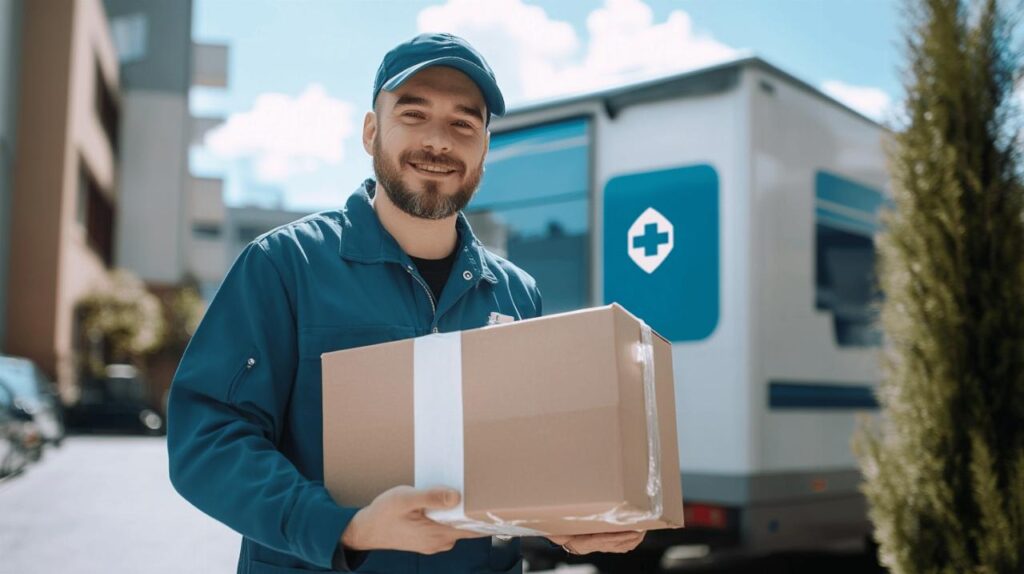The role of a pharmacy delivery driver has become increasingly vital in the United Kingdom, particularly as the demand for medication delivery services continues to grow. This position not only requires a valid driving licence and a clean record, but also demands a unique combination of skills, from time management to customer service. For those considering this career path, understanding the qualifications, responsibilities, and the importance of mastering local geography is essential to succeed in this rewarding field.
Essential Requirements and Qualifications for Pharmacy Delivery Drivers
Entering the field of pharmacy delivery driving in the UK begins with meeting specific requirements that ensure both safety and reliability. A clean driving licence is the foundation of this role, as employers need assurance that drivers can operate vehicles responsibly and legally. Given the sensitive nature of the items being transported, a background check such as a Disclosure and Barring Service check is typically mandatory. This step protects both the pharmacy and the patients who rely on these services, ensuring that only trustworthy individuals handle medications and medical equipment.
Driving licence standards and background checks
The standard for pharmacy delivery drivers is straightforward yet critical. A full UK driving licence is required, and any endorsements or points on the licence may affect eligibility. Employers scrutinise driving records to confirm that candidates have a history of safe driving, as this directly impacts the timely and secure delivery of pharmaceutical products. The DBS check further reinforces the integrity of the role, as it verifies that the driver has no criminal history that could compromise patient safety. This combination of a clean licence and a thorough background check forms the bedrock of trust between the pharmacy, the driver, and the customer.
Safety training and on-the-job preparation
While prior experience in delivery driving is not always necessary, many pharmacies provide comprehensive on-the-job training to equip new drivers with the skills they need. This training covers safety handling procedures, ensuring that medications are transported in a manner that preserves their efficacy and prevents contamination. Understanding road safety and adhering to the driver's hours regulations are also emphasised during this preparation phase. Some employers go a step further by offering advanced driver training programmes, which enhance driving skills and reduce the risk of accidents. The DVSA oversees commercial driving licences, and for professional drivers, CPC training is mandatory, ensuring that all drivers meet the high standards required in the logistics industry.
Core Responsibilities and Skills Needed in the Role
The day-to-day responsibilities of a pharmacy delivery driver extend beyond simply transporting packages from one location to another. This role involves delivering medicines, pharmaceutical items, and occasionally medical equipment to homes or healthcare facilities, which is especially crucial for individuals with mobility issues or long-term health concerns. The ability to handle these items with care and ensure they reach the correct recipient in perfect condition is paramount.
Delivering medicines and medical equipment safely
Safe delivery is the cornerstone of this profession. Drivers must be meticulous in verifying addresses and using barcode scanners to avoid wrong deliveries, as even a small error can have serious consequences for a patient's health. Physical fitness is another important aspect, as drivers regularly lift packages that can weigh up to twenty-three kilograms. Proper lifting techniques and training help prevent injuries, ensuring that drivers can perform their duties without physical strain. Attention to detail is essential when handling prescriptions and medical equipment, as these items require careful packaging and transportation to maintain their integrity.
Building professional customer relationships
Strong communication skills are vital for pharmacy delivery drivers, as they serve as the face of the pharmacy during each interaction with customers. Representing the pharmacy professionally means engaging with patients in a courteous and respectful manner, addressing any concerns they may have about their deliveries, and ensuring that the service is both reliable and reassuring. Building trust with customers not only enhances the reputation of the pharmacy but also fosters a sense of community and care. Effective communication also involves coordinating with the pharmacy team to resolve any issues that arise, such as delivery delays or prescription queries, demonstrating a commitment to customer service that goes beyond the basic requirements of the job.
Mastering local geography and efficient route planning
 One of the most significant challenges for pharmacy delivery drivers is mastering the local geography and developing efficient route planning strategies. Familiarity with the delivery area is not just a convenience; it is a critical skill that directly impacts the speed and reliability of deliveries. Understanding local traffic patterns, recognising shortcuts, and knowing how to navigate through congested urban areas can make the difference between a timely delivery and a delayed one. This knowledge is built over time through experience and careful observation, and it is an area where drivers can continuously improve their performance.
One of the most significant challenges for pharmacy delivery drivers is mastering the local geography and developing efficient route planning strategies. Familiarity with the delivery area is not just a convenience; it is a critical skill that directly impacts the speed and reliability of deliveries. Understanding local traffic patterns, recognising shortcuts, and knowing how to navigate through congested urban areas can make the difference between a timely delivery and a delayed one. This knowledge is built over time through experience and careful observation, and it is an area where drivers can continuously improve their performance.
Familiarising yourself with your delivery area
Getting to know the local area involves more than simply following GPS directions. It requires a deep understanding of the neighbourhoods, the layout of streets, and the typical traffic conditions at different times of the day. Drivers who invest time in learning their delivery zones can anticipate potential delays caused by traffic congestion in cities or road works, allowing them to adjust their routes proactively. Weather conditions such as rain, snow, or ice can also affect travel times and safety, making it essential to remain adaptable and prepared for changing circumstances. This local expertise not only reduces fuel costs by minimising unnecessary mileage but also ensures that patients receive their medications as quickly as possible.
Utilising navigation systems and delivery applications
Technology plays a pivotal role in modern delivery driving, and pharmacy delivery drivers benefit greatly from the use of navigation systems and delivery applications. Route optimisation software calculates the fastest routes by analysing real-time traffic data, helping drivers avoid congested areas and save time. GPS tracking allows both the pharmacy and the customer to monitor the driver's location, providing transparency and peace of mind. Delivery apps connect drivers with customers and streamline the process of managing multiple deliveries, making it easier to prioritise urgent orders and coordinate schedules. Familiarity with these tools is advantageous and, in many cases, essential for meeting the demands of the role. Drivers who embrace technology and continuously update their skills in using these applications find themselves better equipped to handle the complexities of route planning and time management.
Finding employment opportunities in pharmacy delivery
The UK logistics industry is thriving, employing over two point seven million people, with the growth of online shopping driving demand for delivery drivers across various sectors. For those seeking employment as pharmacy delivery drivers, opportunities are abundant and varied, ranging from large pharmacy chains to independent chemists and specialist health sector delivery companies. Understanding where to look and what to expect from different types of contracts is key to finding a position that suits your lifestyle and career goals.
Working with Pharmacy Chains and Independent Chemists
Large pharmacy chains such as those found throughout the United Kingdom often hire delivery drivers on a regular basis, offering stability and structured employment. These organisations typically provide comprehensive training programmes and access to advanced driver training, which can enhance your skills and career prospects. Independent chemists, on the other hand, may offer a more personalised working environment where drivers develop closer relationships with both the pharmacy team and the customers they serve. Specialist health sector delivery companies focus exclusively on transporting medical items, providing an opportunity to specialise in this niche area of logistics. Additionally, companies like Pegasus Couriers, which operates six depots and employs around five hundred drivers, offer roles that involve working with major clients such as Amazon and Yodel, further expanding the range of opportunities available.
Understanding contract types and flexible working arrangements
Contracts in the pharmacy delivery sector can vary significantly, offering options between permanent, temporary, or interim positions. Employed drivers typically earn hourly wages plus overtime, with parcel delivery often involving daytime shifts from Monday to Saturday. Some roles, particularly in food delivery or same-day courier services, may require working evenings, weekends, or even twenty-four-hour shifts, providing flexibility for those who prefer varied working hours. Self-employed couriers have the freedom to set their own schedules and keep delivery fees, though they are responsible for covering fuel and vehicle costs, as well as ensuring their own insurance and vehicle inspections. Urban areas tend to offer more opportunities due to higher demand, making them ideal for drivers seeking consistent work. Flexibility and availability are often beneficial, as employers value drivers who can adapt to changing schedules and peak periods.





